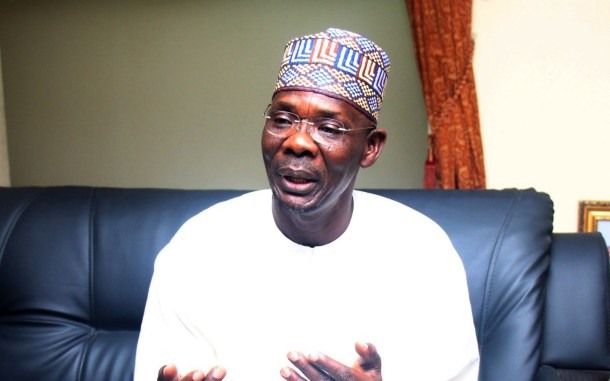NAGIS commences distribution of C-of-Os
Governor Abdullahi A. Sule has called on land owners in the state to acquire their title documents from the Nasarawa Geographic Information System (NAGIS), Karu to enable them access facilities from banks and other organisations. He gave the charge during a working visit to the NAGIS Office in Karu Local Government Area, adding that he […]

Engineer Abdullahi Alhaji Sule, Nasarawa state governor.
Governor Abdullahi A. Sule has called on land owners in the state to acquire their title documents from the Nasarawa Geographic Information System (NAGIS), Karu to enable them access facilities from banks and other organisations.
He gave the charge during a working visit to the NAGIS Office in Karu Local Government Area, adding that he had signed about 400 Certificates of Occupancy (C of Os) within three months.
He also directed that the C-of-Os for people of the state who are legal land owners be checked to allow them access facilities from relevant institutions.
In his remarks, the Director General of NAGIS, Mr. Sunny Agassi said, “The prompt signing of Certificates of Occupancy (C-of-Os) for private property owners by Governor Abdullahi Sule has opened a new chapter in the history of the state, as NAGIS is ever ready to ensure that our dear citizens and businesses obtain maximum benefits obtainable by using their bankable instruments to improve on the state’s economy.”
According to him, NAGIS is always ready to improve its service to serve every citizen of the state and beyond who are engaged in genuine business, as the best way to improve the lives of the citizens is through issuance of digital bankable instruments.
He said there has never been a better time to obtain Cs-of-O than now, given the zeal and commitment of Governor Sule to liberalise the state’s economy to a 21st century model, where bankable assets grow state’s economy.
Agassi said the process of acquiring a C-of-O is relative to the size of land, adding that charges in the state were the lowest in Nigeria and that the duration ranged from one week to a maximum of three weeks, depending on requisite factors.
